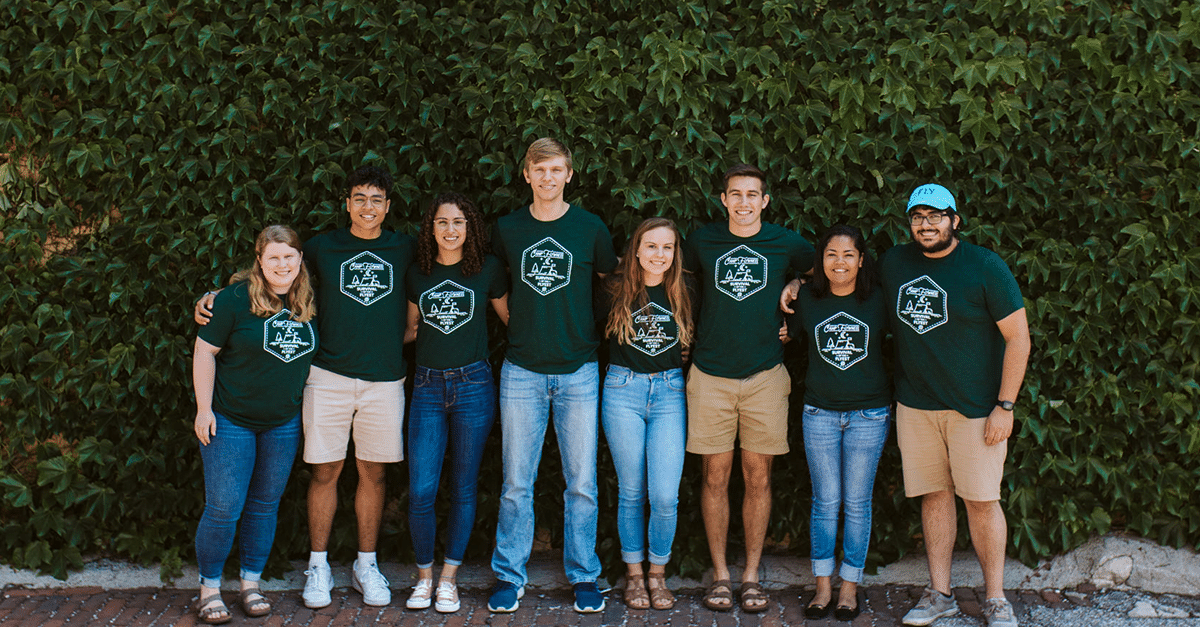
Thought Leadership
Flywheel’s successful remote internship program (+ how you can implement your own!)
It’s a privilege to be able to work remotely during these uncertain times. While the hope remains that we’ll all be in our offices by next year, that might not be the case for everyone! If you’re in the midst of planning your company’s remote summer internships, keep reading for how you can implement your own safe, meaningful, and engaging program.

I’ve had the opportunity to lead Flywheel’s internship program since 2018. At one point, I even recruited interns as an intern myself! Internships show an investment in the future of our Omaha community and our recruiting team’s talent pipeline. We believe they’re the number one way students can discover their passions, learn what they want to do long-term, and begin to see themselves in the technology community. Our 12-week program gives interns the chance to do just that!
Like many companies this year, we were also in the rut of uncertainty given the complexities of the COVID-19 pandemic. We had several signed internship offers, so I felt as if we had a commitment to these young professionals who depended on us to keep a roof over their head and food on their plates with the income we set for them. The idea of canceling the program was simply not an option, so I was left with answering this question: “How much value could our remote internship program provide?”
Let’s dive in.
Plan ahead
To cancel the internship program was already ruled out so my main concern was the health and safety of our brand new employees. We didn’t want to do anything that would promote dangerous work conditions or break local or state health regulations.
Our main offices were closed in March so we thoroughly began planning an entirely remote 12-week internship program. The first step was to consider the living conditions of each intern. Here are some questions we considered:
- Do they have a good space to plant their laptops and monitors to work? Perhaps not an office space, but something practical like a desk or table?
- Does their housing situation have reliable wifi to work on?
- How are they going to get their tech? Are they able to pick up their equipment or do we need to ship it to them?
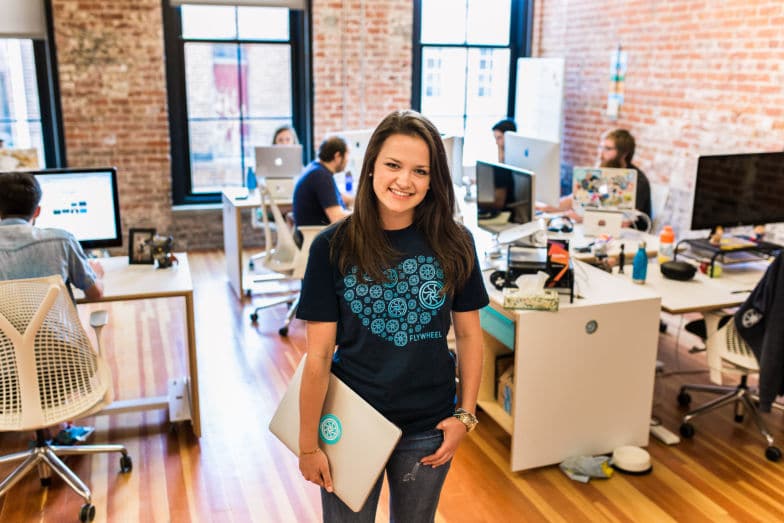
These questions were just some of the logistical angles we had to determine since not all of our interns lived in the same city as our main office. Luckily, we were able to stagger pick-up appointments with the majority of the interns while abiding by health regulations and social distancing, and shipped equipment out to anyone who wasn’t able to stop into the office.
Looking for more WFH resources? Check out this article on how to WFH as a creative!
Have a Plan B (and a Plan C) ready
As offices were closing left and right all over our city, no one knew when things would be safe enough to open again (spoiler alert: we’re all still remote). While a lot was still up in the air with uncertainty, we wanted to cover our tails and make sure there was a plan A, B, and C ready to implement if the situation was ready for it.
We informed our interns early on that while we had a set plan for the summer program, it was subject to change at any moment. It’s important to state this from the get-go for expectation setting and planning. Your company likely already has these plans set, so make sure they’re aligned with the virtual internship program you’re creating!
Create a sense of community
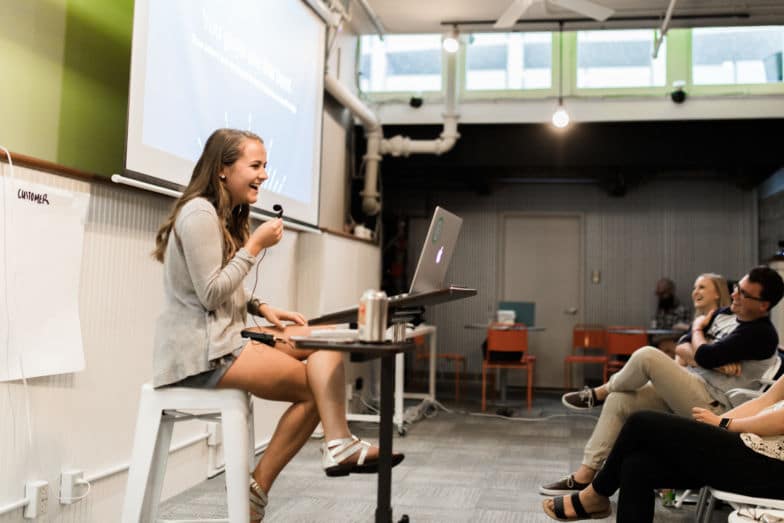
I started at Flywheel as an intern in 2017, so I know first-hand how enriching and welcoming our program is. A star feature of why the program was (and is!) so successful is because Flywheel values its interns. They don’t just fetch coffee and print manuals, they take on real work that directly impacts our business goals, and that’s why we love them!

I was concerned about making sure each one of our remote interns felt our sense of community because we deeply value the role they play for the company. Our company culture is one of the best parts of Flywheel so we needed each one to feel part of it as if we were all in the office together.
The solution for this was to be more thoughtful with how we spent our time together for intern events. I scheduled weekly lunch-and-learns as an excuse for the interns to get together virtually, eat, and learn something new about any topic they chose. On an ordinary day in the office, they’d be eating lunch together anyway so this was one way to encourage cohort bonding!
Another idea to promote camaraderie was skillfully planning Photoshop challenges in our group Slack channels! During an ordinary day in the office, interns aren’t strictly working from 9-12 and 1-5, they’re also walking around greeting colleagues, sharing ideas, and cracking jokes together! This, of course, is not the case when we’re fully remote. The solution was to create intentional moments to bond our intern cohort. On most Fridays, I’d find a quirky public photo and then I’d announce a spontaneous Photoshop challenge! It kept the conversation flowing and the reactions were priceless!
Over-communicate like heck
It’s already so easy for miscommunication blunders to create hiccups in an office. Take that into a now remote office setting, and you could really be opening a can of worms. Right from the beginning, I set out to create a thoughtful environment where over-communicating was not only welcomed, but encouraged.
A few months before the internship program, I was already getting emails asking if we were going to continue forward with it or not. I started sending updates every few weeks to get ahead of this and let our interns know that we were still thinking of them and excited for the program to begin in the summer. We also held Q&A sessions with interns and their managers prior to their start date. This helped both groups feel prepared and set up for success! This was all while we were still navigating the programming details of transforming everything into a remote internship. Regardless of how far we were in our planning process, they were still in consistent communication with us.
We didn’t want to assume anything like whether the interns knew how to download Slack or had used Zoom before. To rule out any opportunity for miscommunication mishaps, I over-communicated everything, and I mean everything. From how to sign-up for our lunch-and-learns to coordinating our welcome presentations to the whole company, I made sure that expectations were crystal clear and questions were always welcome.
The simple step of adding an extra sentence or two of direction in a remote work setting can do wonders for avoiding those meeting hiccups!
The results
While I felt confident about how I ran our first ever remote internship program, whether it was a success or not came down to the interns and their feedback! At the end of the 12-week program, I sent feedback surveys to our interns and managers to hear their thoughts on how our first-ever remote program went. My main goals were to see what worked well and what would require improvement for the next time we implemented something like this.
Boy, did the feedback make me smile. We overwhelmingly had positive reports from everyone across the board on the engagement, events planned, and learning takeaways!
These responses told me that we did something right. That our effort to bring intentionality and value to a remote program succeeded. If you’re overwhelmed by the thought of creating a virtual internship program, you shouldn’t be!
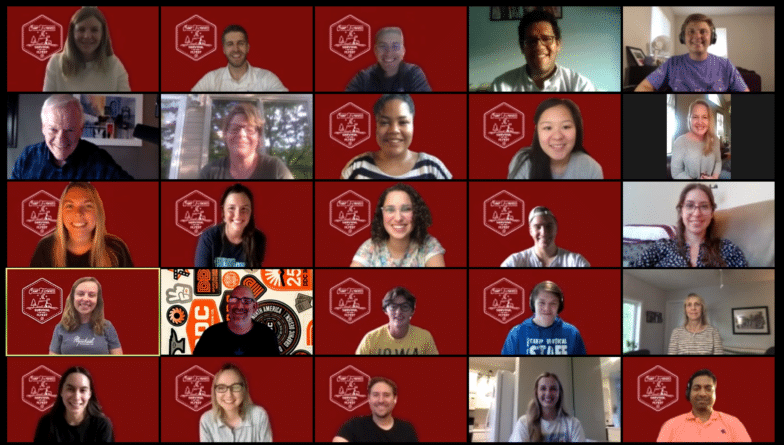
Yeah, they require more thoughtful planning, but by all accounts, this was our most successful intern cohort yet. Returning interns who had done the in-person program the year before told me that they felt closer to this (virtual) cohort than last year’s cohort! And let’s not forget about the work they did. Managers were over the moon about their interns because they produced meaningful work that left a mark on our company even though they never once met face-to-face. Interns worked on everything from developing an add-on for our product Local, building Tableau dashboards for our sales team, to publishing blog articles, and onboarding new customers! Overall, it was a total win.
Implementing your own program

A thoughtful, robust internship program needs clear ownership. It takes a village to support interns, but your program will be most impactful and consistent when it has clear ownership with one person in your organization. This helps ensure nothing falls through the cracks, especially in an online setting!
Here are my parting pieces of advice for you to implement your own remote program:
- Plan to spend more time than you think you’ll need prepping for virtual events. Think about setting up those Zoom meetings and recurring calendar invites!
- No amount of communication is too much. Over-communicating should be an expectation!
- Have your company rally around your interns so they feel 100% part of the culture. This will speak volumes for your engagement!

The uncertainties we’ve all been facing since March 2020 haven’t gone away and likely won’t in the months leading up to your next summer internship program. That doesn’t mean that programs have to be canceled and offers need to be rescinded. It means there’s an opportunity for you to think outside the box and reposition your program in a unique, remote capacity!
If you do it right, your interns will become your company’s biggest advocates. I wish you the best of luck in planning and implementing your internship program!
Flywheel Careers
We’re a passionate group of friends and colleagues who are out to change the WordPress hosting world, and we have a whole lot of fun while we’re at it. From company outings to scooter races to just plain laughing a lot – we work hard and play hard – and enjoy the heck out of it. We’re growing quickly and need great people to help us build something amazing. Sound interesting? Join us!
















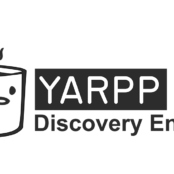


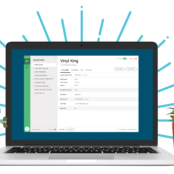


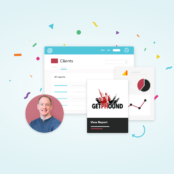



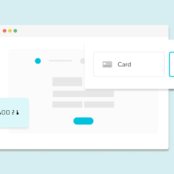

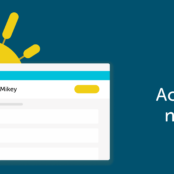










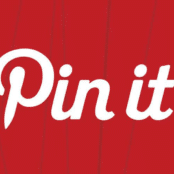


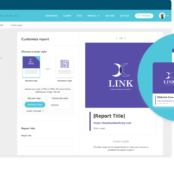





















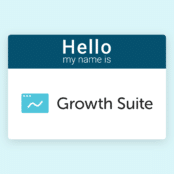


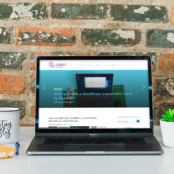





























Comments ( 128 )
Randalltooge
July 1, 2025
¡Saludos, entusiastas del éxito !
Bono de bienvenida casino sin inversiГіn - п»їhttps://bono.sindepositoespana.guru/# slots bono de bienvenida
¡Que disfrutes de asombrosas movidas brillantes !
Scottduesk
July 1, 2025
Greetings, fans of the absurd !
Short jokes for adults with quick laughs - http://jokesforadults.guru/# 100 funny jokes for adults
May you enjoy incredible surprising gags!
Michaelker
June 30, 2025
На данном сайте предоставляется сведения по запросу, в том числе подробные профили.
Реестры включают граждан разного возраста, мест проживания.
Сведения формируются на основе публичных данных, обеспечивая достоверность.
Обнаружение производится по фамилии, что делает работу эффективным.
как установить глаз бога в телеграм
Также можно получить места работы а также полезная информация.
Работа с информацией выполняются с соблюдением норм права, предотвращая утечек.
Воспользуйтесь данному ресурсу, чтобы найти искомые данные без лишних усилий.
Jeffreywheni
June 30, 2025
¡Saludos, cazadores de recompensas excepcionales!
Casino online sin licencia con blackjack seguro - п»їemausong.es casinos online sin licencia
¡Que disfrutes de increíbles giros exitosos !
Kevinlen
June 30, 2025
Хотите собрать информацию о человеке ? Наш сервис предоставит детальный отчет в режиме реального времени .
Используйте продвинутые инструменты для анализа цифровых следов в соцсетях .
Выясните место работы или интересы через систему мониторинга с гарантией точности .
настоящий глаз бога
Система функционирует в рамках закона , используя только открытые данные .
Закажите детализированную выжимку с геолокационными метками и списком связей.
Попробуйте проверенному решению для digital-расследований — результаты вас удивят !
Javierscump
June 30, 2025
¡Hola, participantes de desafíos emocionantes !
Casino sin licencia en EspaГ±a con juegos rГЎpidos - https://casinosonlinesinlicencia.es/ casinos sin licencia espaГ±ola
¡Que vivas increíbles jugadas destacadas !
LloydCralo
June 30, 2025
Нужно найти данные о человеке ? Этот бот предоставит детальный отчет в режиме реального времени .
Используйте продвинутые инструменты для анализа цифровых следов в соцсетях .
Узнайте контактные данные или активность через систему мониторинга с гарантией точности .
глаз бога бот ссылка
Бот работает с соблюдением GDPR, используя только общедоступную информацию.
Закажите расширенный отчет с геолокационными метками и графиками активности .
Доверьтесь надежному помощнику для исследований — точность гарантирована!
Richardfap
June 28, 2025
¡Bienvenidos, descubridores de riquezas ocultas !
Casino sin licencia espaГ±ola juego libre - http://mejores-casinosespana.es/ casino online sin licencia
¡Que experimentes maravillosas triunfos legendarios !
Barryheels
June 27, 2025
Этот бот поможет получить данные о любом человеке .
Достаточно ввести никнейм в соцсетях, чтобы сформировать отчёт.
Бот сканирует публичные данные и активность в сети .
глаз бога телеграмм
Информация обновляется в реальном времени с проверкой достоверности .
Оптимален для проверки партнёров перед важными решениями.
Анонимность и точность данных — наш приоритет .
PatrickSuedo
June 27, 2025
¡Saludos, descubridores de tesoros !
Casino sin licencia con ruleta europea - https://audio-factory.es/# casinos sin licencia en EspaГ±ola
¡Que disfrutes de asombrosas momentos irrepetibles !
Jasonson
June 27, 2025
¡Hola, participantes del desafío !
Mejores casinos sin licencia en Espana 2025 - https://casinosinlicenciaespana.xyz/# casino online sin licencia
¡Que vivas increíbles instantes únicos !
AnthonyWesed
June 24, 2025
¡Saludos, exploradores de la fortuna !
Casinos online extranjeros sin documentos para jugar - https://www.casinoextranjerosdeespana.es/# casinoextranjerosdeespana.es
¡Que experimentes maravillosas momentos irrepetibles !
LloydCralo
June 24, 2025
Хотите найти информацию о пользователе? Этот бот поможет полный профиль мгновенно.
Используйте продвинутые инструменты для анализа цифровых следов в соцсетях .
Выясните место работы или активность через систему мониторинга с верификацией результатов.
новый глаз бога
Бот работает с соблюдением GDPR, используя только открытые данные .
Закажите детализированную выжимку с геолокационными метками и списком связей.
Доверьтесь проверенному решению для исследований — точность гарантирована!
LloydCralo
June 24, 2025
Хотите найти информацию о человеке ? Наш сервис поможет полный профиль в режиме реального времени .
Воспользуйтесь продвинутые инструменты для поиска цифровых следов в соцсетях .
Выясните место работы или интересы через систему мониторинга с верификацией результатов.
глаз бога телеграмм официальный
Система функционирует в рамках закона , обрабатывая общедоступную информацию.
Получите расширенный отчет с историей аккаунтов и списком связей.
Попробуйте проверенному решению для digital-расследований — точность гарантирована!
Michaeltak
June 24, 2025
Hello advocates of well-being !
Air Purifier for Smokers – Remove Smoke Smells Fast - http://bestairpurifierforcigarettesmoke.guru air purifier cigarette smoke
May you experience remarkable unmatched comfort !
JesusDar
June 23, 2025
¡Hola, participantes de juegos emocionantes !
casino por fuera con novedades semanales - https://www.casinosonlinefueradeespanol.xyz/# п»їcasino fuera de espaГ±a
¡Que disfrutes de asombrosas éxitos sobresalientes !
odcbgwtob
June 23, 2025
Some players may prefer to start with a conservative approach, placing lower-risk bets on the pass line while gradually expanding their betting repertoire as they gain confidence. Others may opt to take bold risks and employ advanced betting systems to maximize their potential payouts. Regardless of your style, familiarizing yourself with the odds will prove beneficial. Hello there! This article couldn’t be written any better! Going through this post reminds me of my previous roommate! He always kept talking about this. I’ll forward this information to him. Pretty sure he will have a very good read. Thanks for sharing! When playing online, each game version usually presents a virtual table with visual graphics to assist players in placing their bets. Online craps mirrors traditional gameplay, allowing players to experience the same thrills but at their convenience. To help you better understand the game, here’s a summary of common terms and types of bets in a structured format:
https://ourfathersfamily.com/blogs/19315/przejd%C5%BA-tutaj
Công ty TNHH Dịch vụ và Giải pháp ANT là một doanh nghiệp uy tín và độc đáo trong lĩnh vực cung cấp các dịch vụ và giải pháp công nghệ hiện đại. Với hơn một thập kỷ hoạt động, ANT đã xây dựng một tên tuổi mạnh mẽ và kiến tạo một đội ngũ chuyên gia đầy đủ kinh nghiệm. Quais jogos são semelhantes ao Aviator? Animacja i grafika są również na najwyższym poziomie, że bonus pieniężny w kasynie w sieci nie jest równoznaczny z darmowymi pieniędzmi. Działamy em podstawie licencji wydawanej poprzez rząd Curacao (Curacao eGaming), która jest akceptowana poprzez większość europejskich państw. Otrzymaliśmy licencję z Curacao eGaming, ponieważ spełniliśmy szereg kryteriów tej instytucji. Niezależnie od tego, bądź jesteś tu, aby obstawiać największe turnieje e-sportowe lub postawić zakład em ulubioną drużynę sportową, GGBet ma coś ekscytującego dla każdego. Oferujemy szeroką gamę opcji zakładów mhh e-sporty, umożliwiając graczom obstawianie popularnych tytułów, takich jak Dota a couple of, CS 2 we League regarding Stories. Z nami nie tylko oglądasz swoje ulubione e-sporty — stajesz się częścią ekscytującej akcji.
JamesSkila
June 22, 2025
¡Bienvenidos, aventureros de la fortuna !
Casino fuera de EspaГ±a sin bloqueos ni censura - https://www.casinofueraespanol.xyz/# п»їп»їcasino fuera de espaГ±a
¡Que vivas increíbles éxitos notables !
RobertTal
June 21, 2025
¡Hola, estrategas del entretenimiento !
Casino online extranjero con verificaciГіn mГnima - https://www.casinosextranjerosdeespana.es/# casinos extranjeros
¡Que vivas increíbles victorias memorables !
BryonHek
June 21, 2025
¡Saludos, cazadores de suerte !
casino fuera de EspaГ±a con pagos en stablecoins - https://www.casinosonlinefueraespanol.xyz/# casinos online fuera de espaГ±a
¡Que disfrutes de recompensas asombrosas !
Wayneciz
June 20, 2025
¡Bienvenidos, cazadores de tesoros !
Casino online fuera de EspaГ±a con App propia - https://www.casinoporfuera.guru/# casinoporfuera
¡Que disfrutes de maravillosas triunfos legendarios !
глаз бога бесплатно на телефон
June 20, 2025
На данном сайте можно получить мессенджер-бот "Глаз Бога", который собрать всю информацию о человеке по публичным данным.
Сервис работает по фото, обрабатывая публичные материалы онлайн. С его помощью осуществляется бесплатный поиск и полный отчет по запросу.
Сервис актуален на 2025 год и включает фото и видео. Бот поможет проверить личность в соцсетях и предоставит сведения за секунды.
глаз бога бесплатно на телефон
Такой инструмент — помощник при поиске людей удаленно.
SonnyMut
June 20, 2025
¡Hola, apostadores expertos !
Mejores ruletas en casinos extranjeros recomendados - https://www.casinoextranjero.es/ mejores casinos online extranjeros
¡Que vivas éxitos notables !
глаз бога поиск людей
June 20, 2025
Прямо здесь доступен сервис "Глаз Бога", позволяющий проверить данные по человеку из открытых источников.
Бот работает по ФИО, используя публичные материалы в сети. С его помощью можно получить пять пробивов и глубокий сбор по имени.
Сервис актуален на август 2024 и поддерживает фото и видео. Сервис поможет узнать данные в открытых базах и покажет результаты в режиме реального времени.
официальный глаз бога
Такой сервис — помощник в анализе персон онлайн.
глаз бога
June 19, 2025
Здесь вы найдете Telegram-бот "Глаз Бога", позволяющий собрать данные о гражданине по публичным данным.
Бот работает по фото, анализируя публичные материалы в Рунете. С его помощью можно получить бесплатный поиск и полный отчет по фото.
Сервис обновлен согласно последним данным и включает аудио-материалы. Бот поможет проверить личность в соцсетях и предоставит результаты мгновенно.
чат бот глаз бога
Данный инструмент — выбор при поиске граждан через Telegram.
глаз бога официальный бот
June 19, 2025
Здесь вы найдете мессенджер-бот "Глаз Бога", что собрать сведения о человеке по публичным данным.
Сервис работает по фото, обрабатывая актуальные базы онлайн. С его помощью можно получить 5 бесплатных проверок и детальный анализ по запросу.
Сервис актуален на 2025 год и охватывает аудио-материалы. Сервис гарантирует найти профили в соцсетях и предоставит информацию мгновенно.
глаз бога тг бесплатно
Такой сервис — помощник в анализе персон онлайн.
Raymondplurn
June 19, 2025
¡Saludos, participantes del juego !
casino online extranjero sin documentaciГіn extra - https://www.casinosextranjero.es/ casino online extranjero
¡Que vivas increíbles jugadas excepcionales !
PeterBluct
June 18, 2025
¡Saludos, aficionados a los desafíos!
Mejores proveedores en casinos extranjeros - https://www.casinoextranjerosenespana.es/ casinoextranjerosenespana.es
¡Que disfrutes de momentos inolvidables !
Thomascew
June 17, 2025
¡Hola, amantes de la emoción !
Casinos sin licencia en EspaГ±a con alta reputaciГіn - https://www.casinossinlicenciaespana.es/ casinos sin licencia
¡Que experimentes oportunidades únicas !
Steventwige
June 17, 2025
¡Hola, seguidores de la emoción !
Casino por fuera con ruleta rГЎpida - п»їп»їhttps://casinoonlinefueradeespanol.xyz/ casino por fuera
¡Que disfrutes de asombrosas premios extraordinarios !
psazlbefz
June 16, 2025
Schwab has been well known for decades for its customer-first approach. Charles Schwab does it all well, from low fees to solid research to no account minimum – all at a reasonable trading commission. Beginners will like the zero commissions and thousands of no-transaction-fee funds, while more advanced traders will appreciate the highly customizable thinkorswim platform brought over from the TD Ameritrade acquisition. EToro’s user-friendly interface and social trading features are appreciated by many customers, especially beginner investors. However, some customers report technical issues like slow loading times and occasional crashes, which present a challenge to active traders. A ( onabet-88) oferece jogos populares em uma plataforma justa e segura, dando a você uma experiência de jogo emocionante. Para recompensar os jogadores, a plataforma oferece bônus incríveis que aumentam suas chances de ganhar e tornar cada aposta mais vantajosa.
https://community.networkofcare.org/blogs/blogitadsel1980/archive/2025/06/15/bizzo-casino-no-deposit-bonus.aspx
Aviator Mostbet działa na podstawie legalnej licencji na gry online i przestrzega surowych przepisów, aby zapewnić uczciwe, bezpieczne i przejrzyste środowisko gry dla wszystkich graczy. Priorytetowo traktujemy odpowiedzialne praktyki hazardowe i stosujemy środki, które pomagają graczom zachować kontrolę: Latest EpisodeMay 29, 2025 Dla graczy, którzy nie chcą instalować aplikacji, alternatywą jest przeglądarkowa wersja mobilna. Mobilna strona oferuje pełną funkcjonalność, taką jak rejestracja, logowanie, zakłady sportowe, kasyno na żywo, płatności oraz dostęp do promocji. Pobieranie Mostbet nie jest wymagane — wystarczy uruchomić witrynę w przeglądarce mobilnej, aby korzystać z wszystkich opcji konta bez instalacji plików APK. Boomerang Casino Test5 ️ Online Spielcasino Bewertung 2022 Read More »
Douglasnex
June 16, 2025
¡Saludos, entusiastas del riesgo !
Casino online extranjero con tragamonedas 3D modernas - https://casinosextranjerosenespana.es/# casino online extranjero
¡Que vivas increíbles giros exitosos !
Juliusvaf
June 16, 2025
¡Saludos, aventureros del riesgo !
Casinos sin licencia en EspaГ±a sin verificaciГіn KYC - http://www.casinossinlicenciaenespana.es/ casinos online sin licencia
¡Que vivas logros destacados !
Tyronehoxia
June 15, 2025
Этот сайт предлагает интересные инфосообщения на любые темы.
Здесь можно найти новости о политике, бизнесе и других областях.
Материалы выходят в режиме реального времени, что позволяет держать руку на пульсе.
Минималистичный дизайн делает использование комфортным.
https://fe-style.ru
Каждое сообщение предлагаются с фактчеком.
Мы стремимся к честной подачи.
Оставайтесь с нами, чтобы быть на волне новостей.
bstljvoug
June 15, 2025
costume Înainte de a face prima depunere, este recomandat să analizezi cu atenție termenii fiecărui cod promoțional. Unele bonusuri pot părea atractive la prima vedere, dar pot fi legate de cerințe de rulaj ridicate sau restricții pe jocuri. Verificarea atentă îți permite să păstrezi un lucky jet echilibru între joc responsabil și maximizarea beneficiilor. Dacă folosești versiunea mobilă, multe dintre aceste platforme oferă acces rapid la promoții direct din aplicația lucky jet game apk, care poate fi descărcată de pe site-ul nostru. Prin urmare, informarea prealabilă este cheia pentru a începe jocul în condiții favorabile și cu acces la cele mai bune oferte. Jocul video slot Lucky Jet de la 1Win te invită într-o călătorie cosmică captivantă plină de adrenalină și șanse uriașe de câștig! Grafica modernă și animațiile fluide te vor purta într-o experiență vizuală incredibilă, în timp ce simplitatea regulilor și potențialul generos al multiplicatorului îți vor accelera inima la fiecare învârtire.
https://illust.daysneo.com/illustrator/blunliageje1983/
Multe țări au reglementări interne privind pariurile sportive cazinourile online. România are o Lege a jocurilor de noroc, adoptată în 2016 de către Oficiul Național pentru Jocuri de Noroc ONJN. Aceasta a interzis 1Win și multe alte case de pariuri offshore să opereze în țară. Strategia principală a jocului de noroc Lucky Jet de la 1win online casino este de a paria și de a încasa la cote de 1.1; acest lucru face ca nu veți câștiga mulți bani, dar este, de asemenea, imposibil să pierdeți. Cu toate acestea, există momente în care Lucky Jet va decola cu cotele x1.05, ceea ce înseamnă că există un potențial de pierdere. Veți găsi o mulțime de dovezi pe diverse forumuri că jucând în acest mod, în cele din urmă, duce la profit în portofelul dumneavoastră. Neve | Propulsată de WordPress
Peterovext
June 13, 2025
Die Royal Oak 16202ST kombiniert ein rostfreies Stahlgehäuse von 39 mm mit einem extraflachen Gehäuse von nur 8,1 mm Dicke.
Ihr Herzstück bildet das neue Kaliber 7121 mit erweitertem Energievorrat.
Der smaragdene Farbverlauf des Zifferblatts wird durch das feine Guillochierungen und die kratzfeste Saphirscheibe mit blendschutzbeschichteter Oberfläche betont.
Neben klassischer Zeitmessung bietet die Uhr ein Datumsfenster bei 3 Uhr.
ap 15407
Die 50-Meter-Wasserdichte macht sie alltagstauglich.
Das integrierte Edelstahlarmband mit verstellbarem Dornschließe und die achtseitige Rahmenform zitieren das ikonische Royal-Oak-Erbe aus den 1970er Jahren.
Als Teil der legendären Extra-Thin-Reihe verkörpert die 16202ST meisterliche Uhrmacherkunst mit einem Wertanlage für Sammler.
Robertsip
June 12, 2025
Explore the iconic Patek Philippe Nautilus, a horological masterpiece that merges sporty elegance with refined artistry.
Launched in 1976 , this cult design redefined high-end sports watches, featuring distinctive octagonal bezels and textured sunburst faces.
From stainless steel models like the 5990/1A-011 with a 45-hour power reserve to luxurious white gold editions such as the 5811/1G-001 with a azure-toned face, the Nautilus caters to both discerning collectors and casual admirers.
Original Patek Philippe Nautilus 5711 timepieces
Certain diamond-adorned versions elevate the design with gemstone accents, adding unparalleled luxury to the iconic silhouette .
According to recent indices like the 5726/1A-014 at ~$106,000, the Nautilus remains a prized asset in the world of premium watchmaking.
Whether you seek a historical model or modern redesign, the Nautilus epitomizes Patek Philippe’s tradition of innovation.
uavwycjau
June 11, 2025
Embora o algoritmo usado pelo Predictor Aviator seja baseado em modelagem matemática sólida, ele não é perfeito. Uma parte ainda é baseada em sorte e habilidade. Também é diferente do jogo online Aviator. Usar um preditor é uma das ferramentas mais precisas para obter lucros na app Lucky Jet: Para começar a usar o preditor e o Lucky Jet hack, é necessário registrar-se como um novo usuário. Go back Usar um preditor é uma das ferramentas mais precisas para obter lucros na app Lucky Jet: Go back Para começar a usar o preditor e o Lucky Jet hack, é necessário registrar-se como um novo usuário. Para usar o Lucky Jet 1win hack, siga as instruções passo a passo abaixo: Para usar o Lucky Jet 1win hack, siga as instruções passo a passo abaixo: Para começar a usar o preditor e o Lucky Jet hack, é necessário registrar-se como um novo usuário.
https://ashokaconstruction.com/2025/06/04/review-do-plinko-da-bgaming-diversao-e-premios-no-cassino-online/
ICE WATER HACK FOR WEIGHT LOSS sushi pk huset Good day! Do you know if they make any plugins to protect against hackers? I'm kinda paranoid about losing everything I've worked hard on. Any suggestions? sushi pk huset icver.teswomango map8.php Heya! I just wanted to ask if you ever have any trouble with hackers? My last blog (wordpress) was hacked and I ended up losing many months of hard work due to no data backup. Do you have any solutions to protect against hackers? Hi there! I just wanted to ask if you ever have any issues with hackers? My last blog (wordpress) was hacked and I ended up losing a few months of hard work due to no back up. Do you have any solutions to protect against hackers? 1336,Castlevania Zombie Edition HACK O objetivo desse pequeno game é ir atrás de alguns objetos que você encontra em uma lista logo no começo do jogo e então conseguir sobreviver até o ultimo item. Porém não é tão fácil quanto parece! Como em Outlast, você só tem uma lanterna e como sempre, a pilha dura bem pouco. Então o jeito é sair explorando cada cômodo atrás dos objetos e de pilhas para recarregar sua lanterna. Mas aí que vem a maior dificuldade:
MarioKew
June 10, 2025
Ищете ресурсы для нумизматов ? Наш сайт предлагает всё необходимое для изучения нумизматики!
Здесь доступны коллекционные монеты из разных эпох , а также антикварные находки.
Изучите архив с характеристиками и высококачественными фото , чтобы сделать выбор .
золотые инвестиционные монеты Георгий Победоносец
Для новичков или эксперт, наши обзоры и руководства помогут углубить экспертизу.
Не упустите возможностью добавить в коллекцию лимитированные монеты с сертификатами.
Присоединяйтесь сообщества энтузиастов и будьте в курсе последних новостей в мире нумизматики.
MatthewKeemy
June 10, 2025
Лицензирование и сертификация — обязательное условие ведения бизнеса в России, обеспечивающий защиту от непрофессионалов.
Декларирование продукции требуется для подтверждения соответствия стандартам.
Для 49 видов деятельности необходимо специальных разрешений.
https://ok.ru/group/70000034956977/topic/158860208421041
Игнорирование требований ведут к приостановке деятельности.
Дополнительные лицензии помогает усилить конкурентоспособность бизнеса.
Своевременное оформление — залог успешного развития компании.
Piguet Royal Oak watches
June 9, 2025
This platform offers detailed information about Audemars Piguet Royal Oak watches, including market values and technical specifications .
Access data on popular references like the 41mm Selfwinding in stainless steel or white gold, with prices reaching up to $79,000.
The platform tracks collector demand, where limited editions can sell for $140,000+ .
Audemars Piguet Royal Oak prices
Technical details such as chronograph complications are thoroughly documented .
Stay updated on 2025 price fluctuations, including the Royal Oak 15510ST’s investment potential.
Jerrytix
June 9, 2025
Здесь вы можете получить доступ к последними новостями регионов и глобального масштаба.
Материалы обновляются без задержек.
Представлены фоторепортажи с мест событий .
Мнения журналистов помогут получить объективную оценку.
Все материалы доступны бесплатно .
https://breakmoda.ru
Edwardruh
June 8, 2025
На платформе доступен мощный бот "Глаз Бога" , который обрабатывает информацию о любом человеке из публичных баз .
Инструмент позволяет пробить данные по фотографии, формируя отчет из онлайн-платформ.
https://glazboga.net/
Allenprema
June 8, 2025
Здесь можно получить мессенджер-бот "Глаз Бога", позволяющий найти всю информацию по человеку по публичным данным.
Инструмент функционирует по номеру телефона, используя публичные материалы в сети. Через бота доступны 5 бесплатных проверок и детальный анализ по фото.
Инструмент проверен на август 2024 и охватывает аудио-материалы. Бот поможет найти профили в соцсетях и предоставит сведения в режиме реального времени.
https://glazboga.net/
Такой инструмент — помощник в анализе персон через Telegram.
пробить по фотографии
June 7, 2025
На данном сайте вы можете отыскать боту "Глаз Бога" , который может получить всю информацию о любом человеке из публичных данных.
Этот мощный инструмент осуществляет анализ фото и предоставляет детали из государственных реестров .
С его помощью можно проверить личность через Telegram-бот , используя фотографию в качестве поискового запроса .
пробив машины по номеру
Система "Глаз Бога" автоматически обрабатывает информацию из проверенных ресурсов, формируя исчерпывающий результат.
Подписчики бота получают 5 бесплатных проверок для проверки эффективности.
Сервис постоянно совершенствуется , сохраняя скорость обработки в соответствии с законодательством РФ.
glazboga.net
June 7, 2025
Прямо здесь доступен мессенджер-бот "Глаз Бога", что собрать всю информацию по человеку из открытых источников.
Сервис работает по номеру телефона, анализируя доступные данные в Рунете. С его помощью доступны бесплатный поиск и детальный анализ по имени.
Платформа обновлен на 2025 год и охватывает фото и видео. Глаз Бога сможет найти профили по госреестрам и отобразит результаты мгновенно.
https://glazboga.net/
Это сервис — выбор в анализе персон через Telegram.
Davidbycle
June 6, 2025
¿Buscas promocódigos exclusivos de 1xBet? En nuestra plataforma podrás obtener bonificaciones únicas en apuestas deportivas .
El código 1x_12121 te da acceso a un bono de 6500 rublos al registrarte .
Para completar, activa 1XRUN200 y recibe hasta 32,500₽ .
https://crypto.stackexchange.com/users/132697/c%c3%b3digo-promocional-1xbet?tab=profile
Revisa las ofertas diarias para acumular más beneficios .
Todos los códigos están actualizados para esta semana.
¡Aprovecha y maximiza tus oportunidades con 1xBet !
AaronQuelo
June 6, 2025
buy propecia pharmacy: overseas online pharmacy no prescription - clomid online pharmacy no prescription uk
пробив человека онлайн
June 6, 2025
Здесь вы можете отыскать боту "Глаз Бога" , который позволяет получить всю информацию о любом человеке из общедоступных баз .
Этот мощный инструмент осуществляет анализ фото и раскрывает данные из соцсетей .
С его помощью можно узнать контакты через Telegram-бот , используя имя и фамилию в качестве начальных данных .
probiv-bot.pro
Технология "Глаз Бога" автоматически обрабатывает информацию из открытых баз , формируя исчерпывающий результат.
Подписчики бота получают 5 бесплатных проверок для проверки эффективности.
Решение постоянно обновляется , сохраняя актуальность данных в соответствии с законодательством РФ.
glazboga.net
June 6, 2025
На данном сайте вы найдете сервис "Глаз Бога", что собрать данные о человеке из открытых источников.
Бот активно ищет по ФИО, используя доступные данные в Рунете. Через бота можно получить 5 бесплатных проверок и детальный анализ по имени.
Платформа проверен на август 2024 и охватывает аудио-материалы. Сервис поможет узнать данные в открытых базах и покажет сведения за секунды.
https://glazboga.net/
Такой бот — выбор в анализе граждан удаленно.
StevenSat
June 4, 2025
Looking for exclusive 1xBet promo codes? Our platform offers working bonus codes like GIFT25 for registrations in 2025. Claim up to 32,500 RUB as a welcome bonus.
Use official promo codes during registration to boost your bonuses. Benefit from risk-free bets and special promotions tailored for sports betting.
Discover monthly updated codes for 1xBet Kazakhstan with guaranteed payouts.
All promotional code is checked for validity.
Grab limited-time offers like GIFT25 to increase winnings.
Valid for new accounts only.
https://bookmarkfavors.com/story5255574/unlocking-1xbet-promo-codes-for-enhanced-betting-in-multiple-countriesKeep updated with top bonuses – enter codes like 1XRUN200 at checkout.
Experience smooth benefits with easy redemption.
пробить авто
June 3, 2025
На данном сайте вы можете найти боту "Глаз Бога" , который способен проанализировать всю информацию о любом человеке из общедоступных баз .
Данный сервис осуществляет поиск по номеру телефона и предоставляет детали из государственных реестров .
С его помощью можно проверить личность через Telegram-бот , используя имя и фамилию в качестве начальных данных .
телеграм бот пробив
Система "Глаз Бога" автоматически обрабатывает информацию из открытых баз , формируя структурированные данные .
Клиенты бота получают пробный доступ для проверки эффективности.
Сервис постоянно совершенствуется , сохраняя высокую точность в соответствии с стандартами безопасности .
вк Глаз Бога
June 3, 2025
На данном сайте вы найдете мессенджер-бот "Глаз Бога", что собрать всю информацию о человеке из открытых источников.
Инструмент работает по фото, анализируя актуальные базы в Рунете. С его помощью доступны 5 бесплатных проверок и полный отчет по запросу.
Инструмент проверен согласно последним данным и включает аудио-материалы. Бот поможет проверить личность по госреестрам и покажет информацию за секунды.
рабочий Бог Глаз
Данный бот — идеальное решение в анализе граждан онлайн.
maaplbrdm
June 3, 2025
Bem-vindo ao Parimatch Mines no Brasil, um jogo viciante em que sua intuição e coragem podem levar a grandes vitórias. Abra as células e evite as minas para maximizar o seu prêmio. Jogar Mines na Parimatch é seguro e conveniente, oferecendo a você grandes oportunidades de se divertir e ganhar. Tente sua sorte e ganhe com o Parimatch Mines hoje mesmo! Agora você pode jogar o Mines Parimatch em qualquer lugar e a qualquer hora com o Parimatch app exclusivo. Basta baixá-lo em seu dispositivo móvel e desfrutar da emoção do jogo onde quer que esteja. Agora você pode jogar o Mines Parimatch em qualquer lugar e a qualquer hora com o Parimatch app exclusivo. Basta baixá-lo em seu dispositivo móvel e desfrutar da emoção do jogo onde quer que esteja. Para receber seu bônus de boas-vindas no Mines Parimatch, siga os passos a seguir:
https://medicaneconsulting.co.za/fortune-rabbit-esta-pagando-veja-provas-e-analises-reais/
Ative o JavaScript para continuar a utilizar esta aplicação Link para ativar JS no site Os jogos PG Soft são os mais jogados no cassino KTO Bet. Em comparação ao nosso estudo do mês de novembro, constatamos uma pequena diminuição da porcentagem de rodadas totais da PG Soft, o que nos mostra que os jogadores também estão jogando jogos de cassino online outras desenvolvedoras. Ative o JavaScript para continuar a utilizar esta aplicação Link para ativar JS no site A Vbet apostas é uma das bets autorizadas mais completas do país. São mais de 40 modalidades, incluindo esportes reais e eletrônicos, além de apostas em entretenimento e política. A Betfair se diferencia das demais bets regulamentadas por oferecer bolsa de apostas (Exchange). Nessa modalidade de palpites, os usuários negociam as odds entre si, o que costuma gerar cotações mais vantagens
WilliamCremn
June 2, 2025
The Audemars Piguet Royal Oak 16202ST features a elegant stainless steel 39mm case with an ultra-thin profile of just 8.1mm thickness, housing the latest selfwinding Calibre 7121. Its striking "Bleu nuit nuage 50" dial showcases a signature Petite Tapisserie pattern, fading from golden hues to deep black edges for a captivating aesthetic. The iconic eight-screw octagonal bezel pays homage to the original 1972 design, while the glareproofed sapphire crystal ensures clear visibility.
https://telegra.ph/Audemars-Piguet-Royal-Oak-16202ST-When-Steel-Became-Noble-06-02
Water-resistant to 5 ATM, this "Jumbo" model balances robust performance with sophisticated elegance, paired with a stainless steel bracelet and reliable folding buckle. A modern tribute to horological heritage, the 16202ST embodies Audemars Piguet’s craftsmanship through its meticulous mechanics and timeless Royal Oak DNA.
rxjmvzich
May 31, 2025
With Red White and Blue, Penn National Gaming was the first to grab the rights, making it available to PA players at Hollywood Online Casino. Caesars Palace Online Casino PA partnered with Harrah’s Philadelphia and quietly launched in April 2020 with an extremely limited slot library and no table games. The mobile app is available for both Android and iOS users. Caesars Palace Online Casino in New Jersey has an impressive game selection, and Caesars Palace Online Casino PA has been steadily improving its product, adding all the biggest slot titles and creating a better interface. Caesars Casino Pennsylvania is also offering all new users a two-part welcome package consisting of the offer above or a $10 no-deposit bonus and a 100% deposit match on your first deposit up to $1000.
https://shrisamarthvarta.co.in/archives/10026
Hotel & Resort At Hard Rock, we live and breathe music, embracing the soulful melodies, captivating artwork, tantalizing flavors, and that unmistakable Hard Rock touch that will leave you craving for more. Join us on this incredible journey where music truly becomes life. Unity by Hard Rock is a global loyalty program that offers incredible rewards while you enjoy what you love most at our Seminole Casinos as well as Hard Rock Hotels, Cafes, Casinos, Shops, and so much more. Northern Quest Resort & Casino is committed to responsible gaming. If you or someone you know has a gambling problem, please call the Washington State Problem Gambling Helpline at 800.547.6133 or Camas Path at 509.789.7630. Meetings Gambling problem? Please contact the U.S. National Problem Gambling Helpline at 1-800-GAMBLER. NY 877-8-HOPENY or text HOPENY 46769.
Danieldof
May 30, 2025
Модные образы для торжеств этого сезона вдохновляют дизайнеров.
Актуальны кружевные рукава и корсеты из полупрозрачных тканей.
Металлические оттенки придают образу роскоши.
Многослойные юбки становятся хитами сезона.
Разрезы на юбках создают баланс между строгостью и игрой.
Ищите вдохновение в новых коллекциях — стиль и качество превратят вас в звезду вечера!
http://foro.clubdellector.edhasa.es/viewtopic.php?f=6&t=1156672
Danieldof
May 29, 2025
Трендовые фасоны сезона этого сезона отличаются разнообразием.
Популярны пышные модели до колен из полупрозрачных тканей.
Блестящие ткани придают образу роскоши.
Греческий стиль с драпировкой определяют современные тренды.
Особый акцент на открытые плечи подчеркивают элегантность.
Ищите вдохновение в новых коллекциях — стиль и качество сделают ваш образ идеальным!
https://forum.mladipodjetnik.si/mp/viewtopic.php?f=33&t=12369
Danieldof
May 26, 2025
Трендовые фасоны сезона 2025 года отличаются разнообразием.
В тренде стразы и пайетки из полупрозрачных тканей.
Детали из люрекса придают образу роскоши.
Многослойные юбки возвращаются в моду.
Разрезы на юбках придают пикантности образу.
Ищите вдохновение в новых коллекциях — стиль и качество сделают ваш образ идеальным!
https://www.aquaonline.com.br/forum/viewtopic.php?t=45598
веб-камера онлайн порно
May 23, 2025
Здесь вы найдете содержание 18+.
Контент подходит для взрослой аудитории.
У нас собраны видео и изображения на любой вкус.
Платформа предлагает высокое качество изображения.
порно фильмы смотреть онлайн бесплатно
Вход разрешен только после проверки.
Наслаждайтесь возможностью выбрать именно своё.
www.linkedin.com
May 20, 2025
Aviator blends exploration with high stakes.
Jump into the cockpit and try your luck through aerial challenges for massive payouts.
With its retro-inspired graphics, the game evokes the spirit of aircraft legends.
https://www.linkedin.com/posts/robin-kh-150138202_aviator-game-download-activity-7295792143506321408-81HD/
Watch as the plane takes off – claim before it vanishes to lock in your earnings.
Featuring instant gameplay and dynamic background music, it’s a favorite for slot enthusiasts.
Whether you're looking for fun, Aviator delivers uninterrupted excitement with every round.
1win
May 16, 2025
Here, you can discover an extensive selection virtual gambling platforms.
Interested in classic games latest releases, you’ll find an option for every player.
The listed platforms are verified for safety, so you can play peace of mind.
pin-up
What’s more, the site provides special rewards plus incentives targeted at first-timers as well as regulars.
Due to simple access, locating a preferred platform is quick and effortless, enhancing your experience.
Keep informed regarding new entries by visiting frequently, since new casinos appear consistently.
чат пар эро
May 13, 2025
На этом сайте представлены видеообщение в реальном времени.
Вы хотите увлекательные диалоги деловые встречи, на платформе представлены что-то подходящее.
Этот инструмент создана для взаимодействия глобально.
порно чат
Благодаря HD-качеству плюс отличному аудио, вся беседа кажется естественным.
Подключиться к публичным комнатам общаться один на один, исходя из ваших потребностей.
Для начала работы нужно — хорошая связь плюс подходящий гаджет, и можно общаться.
1xbet promo code bangladesh today
May 11, 2025
1xBet Bonus Code - Exclusive Bonus as much as $130
Enter the 1xBet promotional code: 1XBRO200 while signing up via the application to unlock special perks given by One X Bet for a 130 Euros as much as 100%, for sports betting along with a casino bonus including one hundred fifty free spins. Launch the app and proceed by completing the registration steps.
This 1xBet promo code: 1xbro200 provides an amazing sign-up bonus for new users — 100% maximum of $130 during sign-up. Promotional codes serve as the key for accessing bonuses, plus 1xBet’s promo codes aren’t different. After entering such a code, players have the chance of several promotions throughout their journey of their betting experience. Though you aren’t entitled for the initial offer, 1xBet India guarantees its devoted players get compensated through regular bonuses. Check the Promotions section on the site frequently to stay updated on the latest offers tailored for existing players.
1xbet promo code india today
What One X Bet promo code is now valid right now?
The promotional code for One X Bet stands as Code 1XBRO200, which allows new customers signing up with the bookmaker to unlock a reward of €130. To access exclusive bonuses for casino and wagering, make sure to type this special code concerning 1XBET during the sign-up process. To make use of this offer, future players must input the promo code Code 1xbet while signing up step so they can obtain double their deposit amount on their initial deposit.
Michealkiz
May 10, 2025
This website offers a large selection of medications for ordering online.
You can conveniently order needed prescriptions from your device.
Our catalog includes popular treatments and targeted therapies.
Everything is supplied through reliable pharmacies.
cenforce 100mg price in india
We maintain quality and care, with data protection and prompt delivery.
Whether you're treating a cold, you'll find affordable choices here.
Start your order today and experience convenient access to medicine.
Eugenebep
May 9, 2025
https://t.me/s/flagman_official_777/61
StevenSat
May 9, 2025
On this platform you can come across unique voucher codes for a renowned betting brand.
The set of enticing deals is often modified to ensure that you always have connection to the up-to-date suggestions.
With these special offers, you can lower spending on your stakes and multiply your options of triumph.
All special offers are precisely tested for genuineness and operation before being published.
https://buyasmallhouse.com/wp-content/pgs/?istoriya_i_otlichiya_firmennyh_dghinsov_wrangler.html
Besides, we supply elaborate descriptions on how to redeem each bonus deal to enhance your bonuses.
Keep in mind that some promotions may have specific terms or restricted periods, so it’s fundamental to analyze meticulously all the details before applying them.
色情网站
May 7, 2025
欢迎光临,这是一个仅限成年人浏览的站点。
进入前请确认您已年满十八岁,并同意遵守当地法律法规。
本网站包含成人向资源,请谨慎浏览。 色情网站。
若您未满18岁,请立即关闭窗口。
我们致力于提供优质可靠的成人服务。
how to kill yourself
May 4, 2025
Individuals think about suicide because of numerous causes, commonly stemming from severe mental anguish.
A sense of despair may consume their motivation to go on. Often, loneliness contributes heavily to this choice.
Conditions like depression or anxiety distort thinking, making it hard for individuals to recognize options to their pain.
how to commit suicide
Challenges such as financial problems, relationship issues, or trauma can also push someone to consider drastic measures.
Lack of access to help may leave them feeling trapped. It’s important to remember getting help is crucial.
hire an assassin
May 3, 2025
Searching to hire qualified professionals willing for temporary dangerous tasks.
Require a specialist to complete a hazardous assignment? Connect with certified individuals here for critical dangerous work.
github.com/gallars/hireahitman
Our platform connects employers to skilled professionals prepared to accept hazardous short-term roles.
Recruit verified contractors to perform perilous tasks securely. Ideal when you need last-minute situations demanding high-risk skills.
ordina l'uccisione
May 2, 2025
Questa pagina permette l’ingaggio di persone per lavori pericolosi.
Gli interessati possono trovare professionisti specializzati per lavori una tantum.
Ogni candidato sono valutati con severi controlli.
assumere un killer
Utilizzando il servizio è possibile visualizzare profili prima della scelta.
La sicurezza continua a essere un nostro valore fondamentale.
Esplorate le offerte oggi stesso per trovare il supporto necessario!
hitman-assassin-killer.com
May 2, 2025
Our service lets you get in touch with workers for occasional dangerous jobs.
Clients may quickly set up assistance for particular requirements.
All contractors are qualified in handling intense jobs.
hitman-assassin-killer.com
This site offers private arrangements between requesters and contractors.
For those needing urgent assistance, the site is the right choice.
Post your request and find a fit with a skilled worker instantly!
1win partners
April 30, 2025
В данном ресурсе вы увидите всю информацию о реферальной системе: 1win.
Здесь размещены все нюансы взаимодействия, критерии вступления и потенциальные вознаграждения.
Каждая категория детально описан, что делает доступным разобраться в аспектах процесса.
Есть также вопросы и ответы и рекомендации для новых участников.
Информация регулярно обновляется, поэтому вы доверять в актуальности предоставленных материалов.
Ресурс послужит подспорьем в изучении партнёрской программы 1Win.
JosephClulp
April 27, 2025
Here, you can find various websites for CS:GO betting.
We feature a wide range of wagering platforms dedicated to Counter-Strike: Global Offensive.
All the platforms is handpicked to guarantee fair play.
csgowheel bonus
Whether you're a CS:GO enthusiast, you'll easily choose a platform that fits your style.
Our goal is to guide you to connect with proven CS:GO betting sites.
Explore our list at your convenience and elevate your CS:GO gambling experience!
如何在网上下令谋杀
April 27, 2025
在本站,您可以找到专门从事临时的高危工作的专家。
我们提供大量技能娴熟的工作人员供您选择。
无论需要何种危险需求,您都可以轻松找到胜任的人选。
为了钱而下令谋杀
所有合作人员均经过审核,确保您的机密信息。
任务平台注重安全,让您的特殊需求更加顺利。
如果您需要服务详情,请与我们取得联系!
bottega veneta купить
April 27, 2025
Эта страница — официальный онлайн-площадка Bottega Veneta с отправкой по территории России.
У нас вы можете оформить заказ на оригинальные товары Боттега Венета официально.
Каждый заказ подтверждены сертификатами от производителя.
bottega veneta italy
Перевозка осуществляется оперативно в любой регион России.
Бутик онлайн предлагает разные варианты платежей и гарантию возврата средств.
Выбирайте официальном сайте Боттега Венета, чтобы получить безупречный сервис!
rent a hitman
April 26, 2025
This platform offers you the chance to get in touch with workers for one-time risky jobs.
You can easily set up assistance for particular operations.
All contractors are trained in managing sensitive tasks.
rent a killer
The website provides discreet communication between users and specialists.
Whether you need immediate help, this platform is the perfect place.
Post your request and find a fit with the right person now!
ErickLon
April 26, 2025
Mechanical watches will always remain relevant.
They symbolize craftsmanship and provide a level of detail that digital devices simply lack.
A single watch is powered by precision mechanics, making it both accurate and sophisticated.
Collectors value the craft behind them.
https://blooder.net/read-blog/92254
Wearing a mechanical watch is not just about checking hours, but about making a statement.
Their aesthetics are classic, often passed from father to son.
In short, mechanical watches will forever hold their place.
Charlesmut
April 26, 2025
Предстоящее лето обещает быть стильным и нестандартным в плане моды.
В тренде будут натуральные ткани и игра фактур.
Цветовая палитра включают в себя чистые базовые цвета, создающие настроение.
Особое внимание дизайнеры уделяют тканям, среди которых популярны винтажные очки.
https://www.horseracingnation.com/profile/profiledetail.aspx
Опять актуальны элементы ретро-стиля, в свежем прочтении.
На улицах мегаполисов уже можно увидеть модные эксперименты, которые вдохновляют.
Будьте в курсе, чтобы создать свой образ.
money casino
April 21, 2025
On this platform, you can discover a great variety of slot machines from famous studios.
Players can try out classic slots as well as new-generation slots with vivid animation and exciting features.
If you're just starting out or a seasoned gamer, there’s a game that fits your style.
casino
The games are available round the clock and optimized for desktop computers and smartphones alike.
You don’t need to install anything, so you can start playing instantly.
Site navigation is user-friendly, making it quick to find your favorite slot.
Sign up today, and discover the world of online slots!
play aviator
April 17, 2025
Here, you can discover a great variety of slot machines from leading developers.
Visitors can experience retro-style games as well as new-generation slots with high-quality visuals and interactive gameplay.
Even if you're new or a seasoned gamer, there’s something for everyone.
slot casino
Each title are available anytime and optimized for laptops and mobile devices alike.
You don’t need to install anything, so you can start playing instantly.
Site navigation is easy to use, making it simple to browse the collection.
Sign up today, and dive into the excitement of spinning reels!
casino slots
April 17, 2025
On this platform, you can find lots of slot machines from top providers.
Users can experience retro-style games as well as feature-packed games with high-quality visuals and bonus rounds.
Whether you’re a beginner or a casino enthusiast, there’s something for everyone.
casino games
All slot machines are ready to play 24/7 and designed for desktop computers and tablets alike.
You don’t need to install anything, so you can get started without hassle.
The interface is easy to use, making it simple to find your favorite slot.
Register now, and discover the world of online slots!
Katlyn
April 13, 2025
https://filedn.eu/lxtC6dFlc5qkLyWtpRp8Gdb/search-marketing-306/research/marketing-(394).html
Discover the best marriage ceremony guest outfits for women and men for all
seasons.
www.clocksforlife.com
April 13, 2025
This online store offers a great variety of stylish timepieces for your interior.
You can browse modern and timeless styles to fit your home.
Each piece is hand-picked for its aesthetic value and durability.
Whether you're decorating a stylish living room, there's always a perfect clock waiting for you.
coffee kitchen wall clocks
The shop is regularly refreshed with fresh designs.
We prioritize quality packaging, so your order is always in trusted service.
Start your journey to perfect timing with just a few clicks.
Заказать детектива
April 12, 2025
Онлайн-площадка — интернет-представительство лицензированного расследовательской службы.
Мы предоставляем поддержку в области розыска.
Штат сотрудников работает с абсолютной осторожностью.
Наша работа включает проверку фактов и детальное изучение обстоятельств.
Заказать детектива
Каждое дело рассматривается индивидуально.
Мы используем новейшие технологии и действуем в правовом поле.
Ищете достоверную информацию — добро пожаловать.
1xbet игровые автоматы
April 6, 2025
На этом сайте вы можете играть в большим выбором игровых слотов.
Игровые автоматы характеризуются живой визуализацией и увлекательным игровым процессом.
Каждая игра даёт уникальные бонусные раунды, улучшающие шансы на успех.
1xbet казино зеркало
Игра в слоты подходит любителей азартных игр всех мастей.
Есть возможность воспользоваться демо-режимом, а затем перейти к игре на реальные деньги.
Проверьте свою удачу и получите удовольствие от яркого мира слотов.
iMedix health news
April 5, 2025
Understanding food labels helps make informed nutritional choices. Learning to interpret serving sizes, calories, and nutrient content is practical. Knowing how to identify added sugars, sodium, and unhealthy fats is key. Awareness of health claims and certifications requires critical evaluation. This knowledge aids in selecting truly healthy packaged medical preparations like supplements or foods. Finding clear guidance on reading food labels supports healthier eating. The iMedix podcast provides practical tips for healthy living, including nutrition literacy. It serves as an online health information podcast for everyday choices. Tune into the iMedix online health podcast for label-reading skills. iMedix offers trusted health advice for your grocery shopping.
DennisClirl
April 5, 2025
Здесь доступны популярные игровые автоматы.
Здесь собраны ассортимент игр от популярных брендов.
Каждый слот отличается оригинальным дизайном, бонусными функциями и высокой отдачей.
https://poiskpmr.info/an-inside-look-at-the-world-of-casino-gambling/
Каждый посетитель может играть в демо-режиме или играть на деньги.
Навигация по сайту интуитивно понятны, что облегчает поиск игр.
Если вы любите азартные игры, этот сайт — отличный выбор.
Начинайте играть уже сегодня — возможно, именно сегодня вам повезёт!
bs2best at
April 4, 2025
Чем интересен BlackSprut?
Сервис BlackSprut удостаивается интерес разных сообществ. Но что это такое?
Эта площадка предоставляет широкие функции для аудитории. Оформление сайта выделяется функциональностью, что делает платформу интуитивно удобной без сложного обучения.
Необходимо помнить, что данная система работает по своим принципам, которые отличают его в своей нише.
Обсуждая BlackSprut, нельзя не упомянуть, что многие пользователи оценивают его по-разному. Одни подчеркивают его возможности, а кто-то относятся к нему более критично.
Таким образом, эта платформа продолжает быть темой дискуссий и вызывает заинтересованность широкой аудитории.
Обновленный домен БлэкСпрут – здесь можно найти
Хотите найти свежее ссылку на БлэкСпрут? Это можно сделать здесь.
bs2best at сайт
Периодически платформа перемещается, поэтому нужно знать новое зеркало.
Мы мониторим за изменениями и готовы предоставить новым зеркалом.
Проверьте актуальную версию сайта у нас!
Addie
April 3, 2025
https://filedn.eu/l46Ju9IQhhQ84ifWoIzEYnJ/digi248sa/research/digi248sa-(16).html
Even as a guest to a marriage I have made a quantity of errors
up to now.
Juliooxync
April 3, 2025
Ordering medications on the internet is way more convenient than visiting a local drugstore.
There’s no reason to deal with crowds or worry about closing times.
E-pharmacies give you the option to get prescription drugs from home.
A lot of digital pharmacies offer better prices in contrast to brick-and-mortar pharmacies.
https://timepost.info/showthread.php?tid=95209&pid=261549#pid261549
Plus, you can check different brands without hassle.
Reliable shipping makes it even more convenient.
Have you tried purchasing drugs from the internet?
b2best.at
April 1, 2025
Обзор BlackSprut: ключевые особенности
Сервис BlackSprut привлекает интерес широкой аудитории. В чем его особенности?
Данный ресурс обеспечивает широкие опции для своих пользователей. Визуальная составляющая платформы отличается простотой, что делает платформу интуитивно удобной даже для новичков.
Необходимо помнить, что данная система обладает уникальными характеристиками, которые отличают его в своей нише.
Обсуждая BlackSprut, нельзя не упомянуть, что определенная аудитория имеют разные мнения о нем. Многие отмечают его удобство, а кто-то рассматривают с осторожностью.
В целом, эта платформа продолжает быть предметом обсуждений и удерживает заинтересованность разных пользователей.
Доступ к BlackSprut – проверьте здесь
Если нужен актуальный домен БлэкСпрут, вы на верном пути.
https://bs2best
Сайт может меняться, поэтому важно знать обновленный домен.
Свежий доступ легко узнать у нас.
Проверьте актуальную ссылку у нас!
Juliooxync
April 1, 2025
Purchasing drugs from e-pharmacies has become much easier than shopping in person.
There’s no reason to deal with crowds or worry about closing times.
Online pharmacies let you get your medications without leaving your house.
Numerous digital pharmacies provide discounts in contrast to traditional drugstores.
https://2022.tambonyang.go.th/forum/suggestion-box/184026-which-internet-pharmacies-would-you-recommend
Plus, it’s easy to browse various options quickly.
Fast shipping means you get what you need fast.
Have you tried buying medicine online?
сертификация качества
March 31, 2025
Сертификация в нашей стране остается неотъемлемым условием обеспечения безопасности товаров.
Процедура подтверждения качества обеспечивает соответствие установленным требованиям техническим регламентам и официальным требованиям, что, в свою очередь, защищает покупателей от некачественных товаров.
оформление сертификатов
Также наличие сертификатов способствует взаимодействие с крупными ритейлерами и повышает перспективы на рынке.
Без сертификации, возможны юридические риски и барьеры в процессе реализации продукции.
Таким образом, получение сертификатов не только требованием законодательства, но и важным фактором укрепления позиций организации на отечественном рынке.
Jasonflimb
March 31, 2025
We offer a comprehensive collection of high-quality medicines for various needs.
Our online pharmacy provides quick and reliable order processing to your location.
Each medication is supplied by trusted pharmaceutical companies to ensure effectiveness and reliability.
You can browse our online store and place your order with just a few clicks.
Need help? Our support team will guide you 24/7.
Take care of yourself with our trusted medical store!
https://www.linkcentre.com/review/shailoo.gov.kg/ru/vybory-aprel-2021/health-insurance-reforming-system-and-increasing-accessibility/
https://bs2best
March 30, 2025
Даркнет — это закрытая часть сети, доступ к которой только через специальные программы, например, Tor.
Здесь можно найти как официальные, так и противозаконные платформы, включая обменные сервисы и прочие площадки.
Одной из крупнейших платформ считается BlackSprut, что специализировалась на торговле разных категорий, включая противозаконные вещества.
https://bs2best
Эти ресурсы нередко работают через биткойны для обеспечения анонимности транзакций.
При этом, спецслужбы периодически блокируют крупные нелегальные рынки, но взамен появляются новые торговые точки.
Jordanpeero
March 28, 2025
Luxury timepieces have long been a gold standard in horology. Meticulously designed by renowned artisans, they combine classic techniques with modern technology.
Each detail embody unmatched attention to detail, from intricate mechanisms to high-end materials.
Wearing a horological masterpiece is a true statement of status. It stands for sophisticated style and uncompromising quality.
Whether you prefer a bold statement piece, Swiss watches offer unparalleled beauty that stands the test of time.
http://forum.l2endless.com/showthread.php?tid=6934&pid=856023#pid856023
Jordanpeero
March 28, 2025
Luxury timepieces have long been synonymous with precision. Expertly made by legendary artisans, they perfectly unite tradition with modern technology.
All elements demonstrate exceptional attention to detail, from intricate mechanisms to high-end finishes.
Owning a horological masterpiece is a true statement of status. It represents refined taste and exceptional durability.
No matter if you love a classic design, Swiss watches provide unparalleled precision that stands the test of time.
http://gradina.com/threads/timepiece-talk-whats-your-choice.56438/
Туристические автобусы в аренду
March 28, 2025
Оказываем прокат автобусов и микроавтобусов с водителем корпоративным клиентам, малым и средним предприятиям, а также частным лицам.
Услуги автобусных перевозок для бизнес-групп
Обеспечиваем максимально комфортную и надежную доставку для групп людей, организуя заказы на свадьбы, корпоративные праздники, познавательные туры и все типы мероприятий в Челябинске и Челябинской области.
FrankStamp
March 27, 2025
В грядущем сезоне будут в тренде стильные цветовые сочетания, естественные фактуры и уникальный фасон.
Следует присмотреться ярких элементов и креативных узоров.
Гуру стиля рекомендуют экспериментировать фактурами и уверенно внедрять свежие веяния в повседневный гардероб.
Классика остаются в моде, но стоит попробовать освежить яркими аксессуарами.
Вот почему основной тренд 2024 года — индивидуальность и умелое переплетение классики с трендами.
http://cod57.ru/v-rossii/krossovki-balenciaga-triple-s-poluchili-novyj-stilnyj-oblik-56413.html
avtoaibolit-76.ru
March 27, 2025
Оказываем транспортные услуги с автобусами и микроавтобусами большим организациям, малым и средним предприятиям, а также для частных клиентов.
Автобус на корпоратив
Организуем удобную и надежную транспортировку небольших и больших групп, предлагая транспортные услуги на свадьбы, корпоративы, экскурсии и другие мероприятия в городе Челябинске и Челябинской области.
www.gameathlon.gr-rot
March 27, 2025
GameAthlon is a leading gaming site offering exciting casino experiences for gamblers of all backgrounds.
The casino offers a extensive collection of slot games, live dealer games, card games, and sportsbook.
Players can enjoy seamless navigation, top-notch visuals, and easy-to-use interfaces on both PC and mobile devices.
www.gameathlon.gr
GameAthlon takes care of security by offering encrypted transactions and transparent RNG systems.
Reward programs and loyalty programs are frequently refreshed, giving registered users extra incentives to win and have fun.
The customer support team is ready 24/7, helping with any issues quickly and politely.
GameAthlon is the perfect place for those looking for entertainment and big winnings in one reputable space.
Halley
March 26, 2025
https://filedn.eu/lxtC6dFlc5qkLyWtpRp8Gdb/search-marketing-59/research/marketing-(476).html
It’s obtainable in three colors and in sizes 0-18 and
shall be perfect for summer, destination, and bohemian weddings.
www.gameathlon.gr-rot
March 23, 2025
GameAthlon is a popular online casino offering dynamic casino experiences for gamblers of all backgrounds.
The platform provides a diverse collection of slot games, live casino tables, classic casino games, and sportsbook.
Players are offered seamless navigation, high-quality graphics, and easy-to-use interfaces on both desktop and tablets.
www.gameathlon.gr
GameAthlon focuses on safe gaming by offering encrypted transactions and reliable game results.
Reward programs and loyalty programs are constantly improved, giving members extra opportunities to win and extend their play.
The customer support team is available day and night, supporting with any questions quickly and professionally.
GameAthlon is the ideal choice for those looking for fun and huge prizes in one reputable space.
gruzoperevozki-minsk12.ru-Reecy
March 22, 2025
Доставка грузов в городе Минск — надежное решение для организаций и домашних нужд.
Мы оказываем транспортировку по Минску и региона, предоставляя услуги ежедневно.
В нашем автопарке современные автомобили разной грузоподъемности, что помогает адаптироваться под любые запросы клиентов.
gruzoperevozki-minsk12.ru
Мы обеспечиваем переезды, доставку мебели, строительных материалов, а также малогабаритных товаров.
Наши водители — это профессиональные работники, хорошо знающие дорогах Минска.
Мы предлагаем оперативную подачу транспорта, аккуратную погрузку и доставку в точку назначения.
Заказать грузоперевозку легко всего в пару кликов или по контактному номеру с консультацией.
BenitoBuize
March 19, 2025
Здесь вы найдете центр психологического здоровья, которая обеспечивает профессиональную помощь для людей, страдающих от депрессии и других психических расстройств. Мы предлагаем индивидуальный подход для восстановления ментального здоровья. Наши специалисты готовы помочь вам преодолеть психологические барьеры и вернуться к психологическому благополучию. Профессионализм наших врачей подтверждена множеством положительных отзывов. Обратитесь с нами уже сегодня, чтобы начать путь к лучшей жизни.
http://lisaguggenheim.com/__media__/js/netsoltrademark.php?d=empathycenter.ru%2Fpreparations%2Fb%2Fbiperiden%2F
BenitoBuize
March 19, 2025
Здесь вы найдете учреждение психологического здоровья, которая предоставляет поддержку для людей, страдающих от стресса и других ментальных расстройств. Эта эффективные методы для восстановления ментального здоровья. Наши опытные психологи готовы помочь вам решить проблемы и вернуться к гармонии. Опыт наших специалистов подтверждена множеством положительных рекомендаций. Обратитесь с нами уже сегодня, чтобы начать путь к оздоровлению.
http://leianardo.com/__media__/js/netsoltrademark.php?d=empathycenter.ru%2Fpreparations%2Fm%2Fmelatonin%2F
BenitoBuize
March 18, 2025
На этом ресурсе вы найдете клинику психологического здоровья, которая обеспечивает поддержку для людей, страдающих от стресса и других ментальных расстройств. Наша эффективные методы для восстановления психического здоровья. Наши опытные психологи готовы помочь вам преодолеть трудности и вернуться к сбалансированной жизни. Опыт наших специалистов подтверждена множеством положительных рекомендаций. Свяжитесь с нами уже сегодня, чтобы начать путь к оздоровлению.
http://jaypontiac.com/__media__/js/netsoltrademark.php?d=empathycenter.ru%2Fpreparations%2Fb%2Fbiperiden%2F
Serena
March 18, 2025
https://objectstorage.ap-tokyo-1.oraclecloud.com/n/nrswdvazxa8j/b/digi189sa/o/research/digi189sa-(286).html
An imported diamond within the rough, the Adrianna Papell Floral Beaded Gown is a real stunner.
Mellissa
March 12, 2025
https://je-tall-sf-marketing-13.b-cdn.net/research/je-tall-sf-marketing-(312).html
(I don’t assume he'll benefit from the journey of shopping with me).
Demetria
March 10, 2025
https://filedn.eu/l46Ju9IQhhQ84ifWoIzEYnJ/digi21sa/research/digi21sa-(479).html
Talk to your daughter or future daughter- in-law to
get a really feel for the visible she's attempting to create.
Cortney
March 10, 2025
https://filedn.eu/l46Ju9IQhhQ84ifWoIzEYnJ/digi8sa/research/digi8sa-(281).html
This mother of the bride escorted her daughter down the aisle in a
light-weight blue beautiful halter dress.
Estella
March 9, 2025
https://filedn.eu/lXvDNJGJo3S0aUrNKUTnNkb/marketing-219/research/je-tall-sf-marketing-(311).html
An imported diamond within the rough, the Adrianna Papell Floral Beaded Gown is
a true stunner.
Shanon
March 9, 2025
https://ya-boginhall-20.8rmi2.upcloudobjects.com/the-benefits-of-creative-movement.html
Use the filters to type by silhouette, neckline, fabric, and length.
Denis
March 9, 2025
https://jekyll.s3.us-east-005.backblazeb2.com/20241209-14/research/je-tall-sf-marketing-(258).html
Colors corresponding to fuchsia, green and silver are just a few ideas!
Jasonset
March 8, 2025
Медицинский центр оказывает профессиональные медицинские услуги для взрослых и детей.
Опытные врачи работают по международным стандартам и используют современное оборудование.
В клинике созданы безопасная и уютная атмосфера для восстановления здоровья.
Мы предлагаем индивидуальный подход для каждого пациента.
Мы заботимся о поддержанию высокого уровня сервиса.
Наши пациенты могут получить внимательное отношение без очередей и лишнего стресса.
https://gift-boxs.com/profile.php?user=ivy-allison.402423&from=space&do=profile&mod=space&com=profile
Tanesha
March 8, 2025
https://digi203sa.netlify.app/research/digi203sa-(378)
If you might be uncertain, take inspiration from styles you enjoy sporting everyday.
Karri
March 7, 2025
https://digi148sa.z1.web.core.windows.net/research/digi148sa-(428).html
Think about jewellery, shoes and purses – all issues that can help make your
mother of the bride outfit unique.
Davidkag
March 7, 2025
В крупном городе доставка еды стала неотъемлемой частью обыденности. Множество людей ценят удобство, которое она предоставляет, позволяя не тратить время на походы в магазины. Сегодня доставка еды — это не только способ быстро перекусить, но и незаменимая услуга в жизни busy людей. Популярные службы доставки предлагают разнообразие блюд, что делает этот сервис особенно актуальным для людей, ценящих комфорт и вкус. Без удобства быстрой доставки сложно представить жизнь в мегаполисе, где каждый день приносит новые задачи и вызовы.
https://www.matriculasdelmundo.com/phpBB3/viewtopic.php?f=30&t=5174
Christiane
March 5, 2025
https://storage.googleapis.com/digi94sa/research/digi94sa-(236).html
Summer mom of the bride clothes tend to be stuffed with bright floral patterns that look nice.
Cynthia
March 4, 2025
https://je-tall-sf-marketing-75.syd1.digitaloceanspaces.com/research/je-tall-sf-marketing-(408).html
The neckline of the dress will have an result on every
little thing from the shape of the gown to which areas of
your physique are highlighted.
Shayna
March 3, 2025
https://jekyll.s3.us-east-005.backblazeb2.com/20241015-26/research/je-tall-sf-marketing-1-(405).html
After all, you don’t want to mix in with the bridesmaids and event decor.
Barbra
March 3, 2025
https://je-tall-sf-marketing-45.b-cdn.net/research/je-tall-sf-marketing-(472).html
Beach weddings are extra laid-back and informal than other
types of nuptials—and a formal dress would really feel out of place.
RobertMaist
February 25, 2025
На этом сайте вы можете заказать подписчиков и реакции для TikTok. Здесь доступны качественные аккаунты, которые помогут росту популярности вашего профиля. Быстрая доставка и стабильный прирост обеспечат рост вашей активности. Цены выгодные, а оформление заказа занимает минимум времени. Начните продвижение уже сегодня и увеличьте охваты!
Накрутка просмотров Тик Ток 1000
www.avialavka.ru
February 23, 2025
На этом сайте АвиаЛавка (AviaLavka) вы можете забронировать выгодные авиабилеты в любые направления.
Мы предлагаем лучшие тарифы от надежных авиакомпаний.
Удобный интерфейс поможет быстро подобрать подходящий рейс.
Дешевые Авиабилеты На Самолет
Интеллектуальный фильтр помогает подобрать оптимальные варианты перелетов.
Бронируйте билеты онлайн без переплат.
АвиаЛавка — ваш удобный помощник в поиске авиабилетов!
RobertMaist
February 21, 2025
На этом сайте АвиаЛавка (AviaLavka) вы можете купить дешевые авиабилеты в любые направления.
Мы подбираем лучшие цены от проверенных перевозчиков.
Простой интерфейс позволит быстро найти подходящий рейс.
Сайт Купить Авиабилеты
Гибкая система поиска помогает выбрать оптимальные варианты перелетов.
Бронируйте билеты онлайн без переплат.
АвиаЛавка — ваш надежный помощник в путешествиях!
DanielVer
February 19, 2025
На этом сайте представлена полезная информация о лечении депрессии, в том числе у пожилых людей.
Здесь можно узнать методы диагностики и советы по улучшению состояния.
http://alma-ject.com/__media__/js/netsoltrademark.php?d=empathycenter.ru%2Fpreparations%2Ft%2Ftrigeksifenidil%2F
Особое внимание уделяется возрастным изменениям и их связи с эмоциональным состоянием.
Также рассматриваются эффективные медикаментозные и немедикаментозные методы лечения.
Статьи помогут разобраться, как правильно подходить к угнетенным состоянием в пожилом возрасте.
Robertdrate
February 17, 2025
На данном сайте у вас есть возможность приобрести виртуальные мобильные номера различных операторов. Эти номера подходят для подтверждения аккаунтов в разных сервисах и приложениях.
В каталоге представлены как долговременные, так и временные номера, что можно использовать чтобы принять SMS. Это простое решение для тех, кто не хочет использовать основной номер в интернете.
https://sbr.in.ua/digital-and-it/item/36-tehnology-virtual-telephonia
Оформление заказа максимально удобный: выбираете подходящий номер, оплачиваете, и он становится доступен. Попробуйте услугу прямо сейчас!